Anti-Cancer Trace Mineral
Selenium is now well established as a potent cancer-fighting trace
mineral. Areas of the world with more selenium-rich soil have lower
cancer rates, and a randomized, double-blind, placebo-controlled trial
in the 1990s showed that men taking a daily 200 microgram selenium
supplement experienced a 37% lower risk of developing new cancer, and a
whopping 50% lower risk of cancer death.
Protective Effect Against Cancer
This form of selenium has been shown to be effective in fighting cancer.
In one human trial involving 238 patients with mild or moderate
esophageal squamous dysplasia were supplemented with 200mcg of
selenomethionine and/or 200mg of the drug celecoxib twice daily for 10
months. After 10 months it was found that although neither
selenomethionine nor celecoxib inhibited esophageal squamous
carcinogenesis for all high-risk subjects, supplementation with
selenomethionine did have a protective effect among subjects with mild
esophageal squamous dysplasia at baseline.
Selenium and colorectal cancer reduction in smokers
A study which was coordinated by the National Cancer Institute (NCI) and
carried out in a number of medical centres investigated the
relationship between advanced colorectal adenoma in smokers and their
serum selenium levels. The results indicated that having higher serum selenium levels could reduce the risk of advanced colorectal smokers especially in recent smokers. This study was published in the Cancer
Epidemiology, Biomarkers and Prevention (15, 2:315-20, 2006).
A total of 758 participants were selected and had a least one
advanced adenoma of the distal colon; the control subjects had a
negative sigmoidscopy. There was a notable inverse association between
serum selenium and colorectal adenoma (advanced stage) within the group of recent smokers. No relationship existed between adenoma risk and
serum selenium in nonsmokers and previous smokers who had quit smoking over 10 years prior. The study results indicated that selenium may reduce the risk of advanced colorectal adenoma development, especially in the recent smoker high-risk group.
Methylselenol Formation is the Key
But not all forms of selenium are equal in their cancer-fighting
properties. To everyone’s surprise, the last decade of scientific
research has found that selenium’s anticancer effect is not due to its use as part of antioxidant or detoxifying compounds in the body. It’s also not linked to absolute tissue levels of selenium achieved by a given form of selenium, or to its ability to boost the immune system. Instead, the cancer-fighting potency of any form of selenium is linked to its ability to form methylselenol, a critical selenium metabolite in the body.
Selenomethionine: Organic Over Inorganic
Organic forms of selenium, like selenomethionine are directly and easily converted into this key cancer-fighting metabolite by enzymes
in the body called methioninases. In contrast, conventional inorganic
(selenite or selenate) selenium supplements are not easily converted to methylselenol. Selenomethionine has also been shown
to be a very safe form of selenium. It provides a natural, stable and easily absorbed form of the mineral. As a result, SeMet is
simultaneously more potent in its cancer-battling prowess, and less toxic per unit of cancer-fighting punch, than other forms of selenium.
SeMet is a natural form of selenium, and is estimated to make up about half of the selenium obtained from dietary sources. It is the mainform in which the body stores selenium, and is easily used by the body
and has been shown to have a bioavailability at least 1.5 – 2 times
higher than inorganic forms of selenium.
Selenium supplements offer antioxidant protection
and may help to promote healthy cell differentiation. Not all forms of
selenium are equal, as some carry a higher risk of toxicity than others, while others produce more effective metabolites for various purposes.
Some of the least toxic forms of selenium with the most cancer-fighting potential include methylselenocysteine and selenomethionine.
AOR SeMet
AOR offers selenium in the form of
selenomethionine, a less toxic and more potent form of selenium.
Selenium’s cancer-fighting strength is linked to its formation of
methylselenol. SeMet is directly and easily converted into this
important metabolite, making it one of the most superior form of
selenium available. AOR’s SeMet comes in the RDA of 55 mcg per capsule with 90 capsules per bottle, allowing for flexible dosing options.
Ip C, Hayes C, Budnick RM, Ganther HE.
“Chemical form of selenium, critical metabolites, and cancer
prevention.” Cancer Res 1991 Jan 15; 51(2): 595-600.
Ip C. “Lessons from basic research in selenium and cancer prevention.” J Nutr. 1998 Nov; 128(11): 1845-54.
Limburg
P.J. et al. “Randomized, Placebo-Controlled, Esophageal Squamous Cell
Cancer Chemoprevention Trial of Selenomethionine and Celecoxib.”
Gastroenterology. 2005. 129(3): 863-873.
Schrauzer G.N. “Selenomethionine: A Review of Its Nutritional
Significance, Metabolism and Toxicity. Journal of Nutrition”. 2000. 130:
1653-1656.
Spallholz J.E. et al. Methioninase and selenomethionine but not
Se-methylselenocysteine generate methylselenol and superoxide in an in
vitro chemiluminescent assay: implications for the nutritional
carcinostatic activity of selenoamino acids. Biochemical Pharmacology.
2004. 67(3): 547-554.
Whanger PD. “Selenocompounds in plants and animals and their biological significance.” J Am Coll Nutr. 2002 Jun; 21(3): 223-32.
A.O.R Advanced Orthomolecular Research Brand -AOR brandClick here for more information: Manufacturer’s Website
AOR Webinar Series

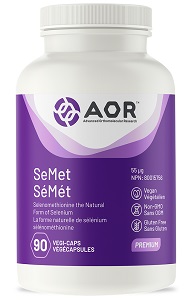
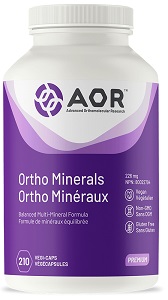
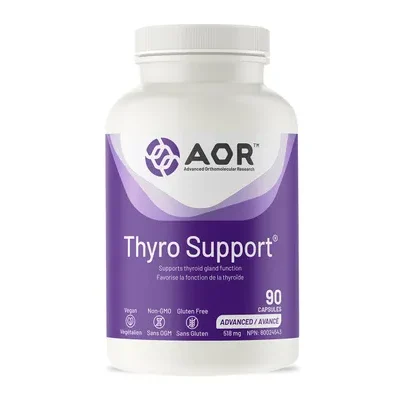
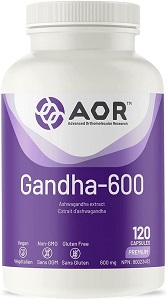
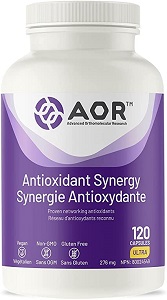
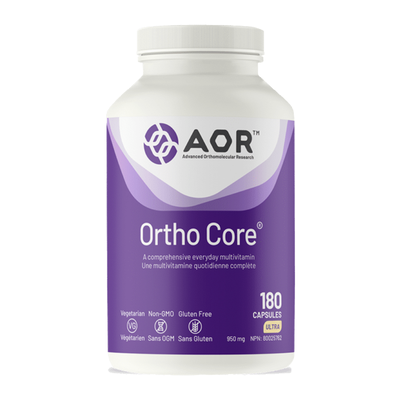
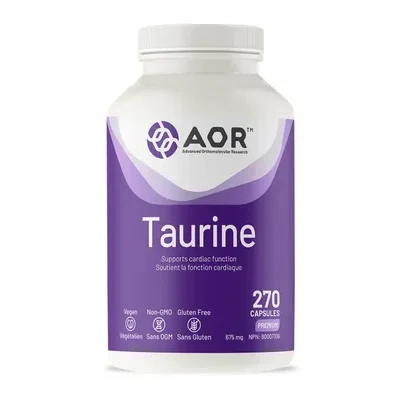
What others are saying
There are no contributions yet.